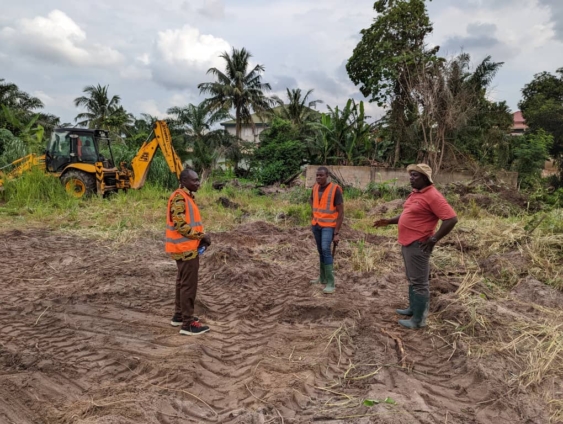The Crops Research Institute under the Council for Scientific and Industrial Research has commenced preparations for pioneering technology trials aimed at reducing methane emissions from rice production.
The initiative under the Agroecology and Circular Economy for Ecosystem Services (ACE4ES) project, marks a pivotal moment in advancing climate-smart farming practices in Ghana.
Research has proven methane emissions are a potent greenhouse gas that impacts the environment.
The project, funded by the Climate and Clean Air Coalition under the UN Environment Program, focuses on tackling methane emissions from flooded rice cultivation.
By integrating innovative methane reduction technologies such as alternate wetting and drying (AWD) systems and biochar applications, the Institute aims to mitigate environmental impacts while enhancing agricultural productivity.
Lead for the ACE4ES project, Dr Kwaku Onwona-Hwesofour Asante emphasized the importance of these trials in addressing climate change challenges in agricultural sectors.
He indicated that reducing methane emissions from rice fields is crucial for sustainable development and climate action in rice-producing economies.
"Through rigorous experimentation and collaboration with local farmers, we aim to identify practical solutions that balance environmental stewardship with food security," Dr. Kwaku Asante said.

"We are committed to fostering partnerships and knowledge exchange to scale up successful methane reduction strategies. This project not only contributes to global climate goals but also strengthens Africa’s resilience to climate impacts, benefiting farmers and communities alike," noted Dr Kwaku Asante.
The field preparations have involved meticulous site selection and soil preparation to ensure optimal conditions for the trials.
The rice technical team consisting of Dr Charles Afriyie-Debrah, Dr Clement Oppong Peprah, Prof. Raphael Kwame Bam, Dr Maxwell Darko Asante, and Dr Felix Frimpong played essential roles during these initial stages.
The CSIR-Crops Research Institute anticipates that findings from these trials will inform national policies and encourage widespread adoption of climate-smart agricultural practices across the region.
The project is starting in four African countries including Ghana, Nigeria, Benin and Tanzania.
As the project progresses, stakeholders remain optimistic about its potential to pave the way for sustainable agricultural development in Africa and beyond.
Latest Stories
-
49th SWAG Awards: High jump Queen Rose Yeboah and Grace Mintah lead nominees for topmost award
8 minutes -
ORAL: ‘National Cathedral spending is an ‘expensive pit of deceit’ – Ablakwa
16 minutes -
Our people didn’t vote – Bawumia explains why the NPP lost
19 minutes -
Dr Bawumia had no choice given Mahama’s decisive victory – Malik Basintale
26 minutes -
ORAL: ‘Clergy were misled by Akufo-Addo’ – Ablakwa on National Cathedral scandal
30 minutes -
‘It is false’- PMMC refutes claims of politicians smuggling gold from Ghana
48 minutes -
2 million NPP supporters did not turn up to vote – Kabiru Mahama
51 minutes -
IPR Ghana congratulates citizens for peaceful election, calls for unity
1 hour -
Bawumia’s 8 minutes elite ball that zapped the energy of trigger happy politicians
2 hours -
It will be a betrayal if National Cathedral saga does not feature in ORAL’s work – Ablakwa
2 hours -
‘It’s unfortunate we had to protect the public purse from Akufo-Addo’ – Ablakwa on ORAL Team’s mission
3 hours -
Congo lawyers say Apple’s supply chain statement must be verified
4 hours -
Stampede in southwestern Nigerian city causes multiple deaths
4 hours -
Tens of thousands without water in Mayotte as curfew brought in
4 hours -
ORAL: We won’t witch-hunt, we’ll focus on transparency, not revenge – Ablakwa
5 hours

